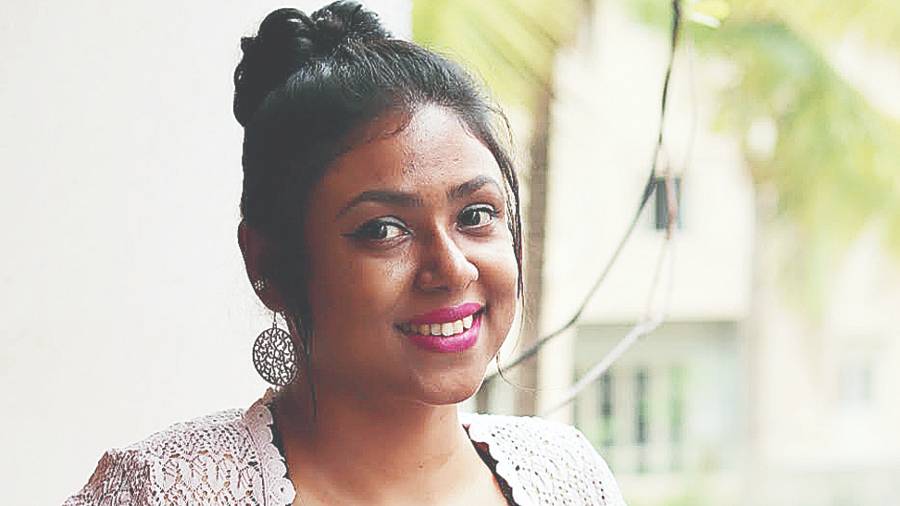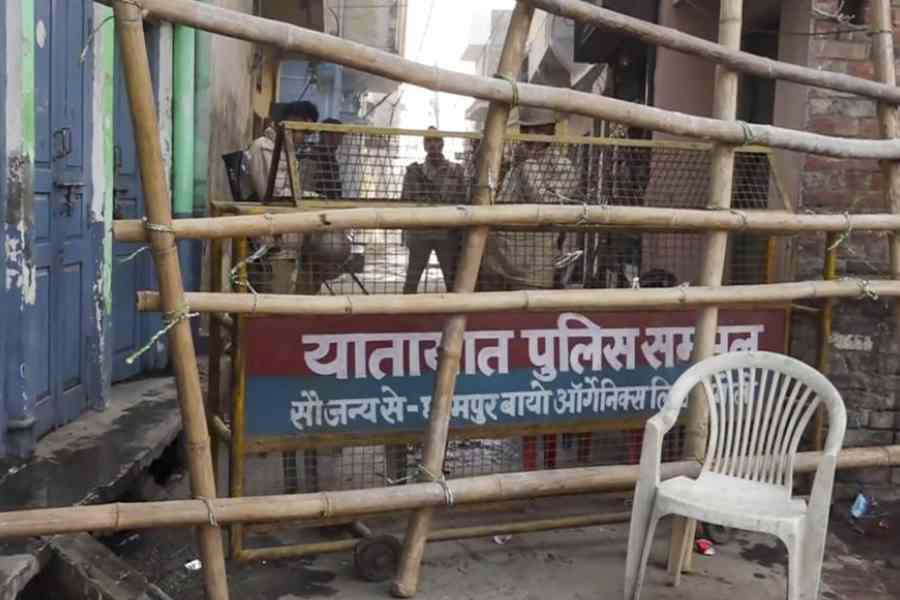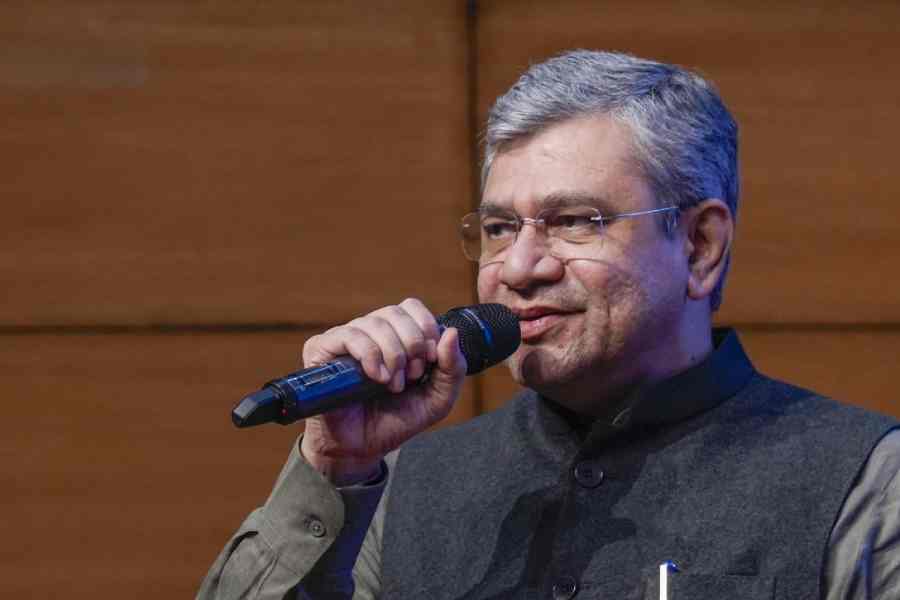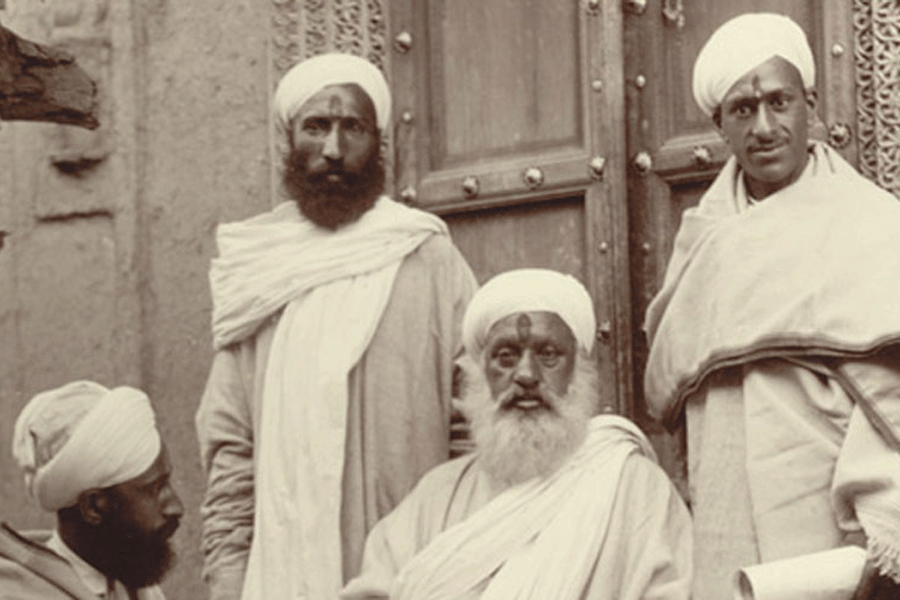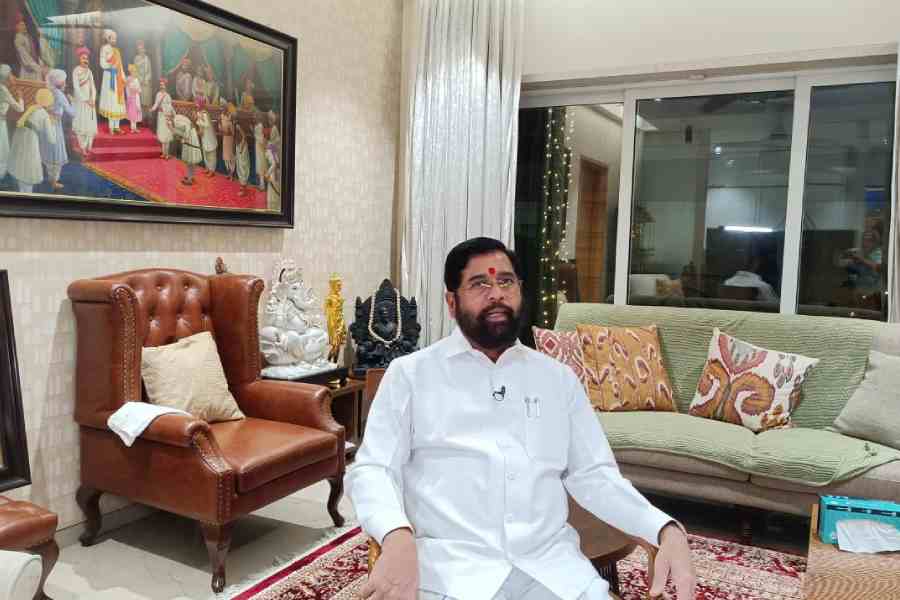Bangalore-based poet Debdatta Bajpai is all set with her debut solo book titled Kishton Mein Zindagi, an anthology of poems that is reminiscent of life. The name of her debut book itself is a perfect summary of the core message carefully tucked away between her verses, that life is a product of a few “kishtein” or fragments that come to us one burst at a time and her first solo book is her lyrical tribute to each of the fragments. “I write about everything everywhere — in office, in between work, as a student in class, in a cafe on a tissue paper. When I was going through my poems I realised that I have so many different aspects of life which comes out in them, which is why I thought that it would make sense to segregate the poems into phases or aspects of life. But conceptually, life itself is fragmented. And this idea of the fragment for me comes from the heartbeat,” said Debdatta.
The poems are written in Hindi but have interestingly been provided in the English script as well. Therefore, although the book does not offer a translation of the poems, it is transcribed in English to make the vernacular more accessible to people that may have some difficulty with its script. “In India, everybody enforces the Hindi language. They say that it is the national language, and it is always enforced. But there is an inherent love for the language as well so rather than enforcing it if it is encouraged, that love for Hindi will become a way for us to bond rather than something that differentiates between people,” she added.
The book is divided into seven chapters that correspond with the seven fragments of a person’s life. Thus, Adhuraapan charts the period of loneliness, human isolation, and deep contemplation and rings of the conflict, pain, and yearning felt by a person in these fragmented moments in life.
Following that is Samjhauta, or the period rift with conflict, trade-offs, and friction felt during troubled and confusing times when the only option left is to barter with life and settle with what you get. Lagaav is the fragment of intense love which is followed by Khamoshi where even the empty void of life has a voice that wishes to speak.
The following chapters are called Sawaal, Roohani, and Pehchaan, which deal with philosophical questions posed at life, the spirituality existing within each fragment lived, and the will to understand one’s self and one’s path despite all the odds standing rigidly against it.
The poems flow from one emotion to the next, both celebrating and cursing life, showcasing the good, the bad, and the ugly, bearing all in what is a deeply personal account of moments lived, loved, and tolerated. The poet takes you through a journey that is partly relatable and wholly stirring, with verses that vary in length much like our thoughts that may run for pages on end or be realised in just a few short lines.
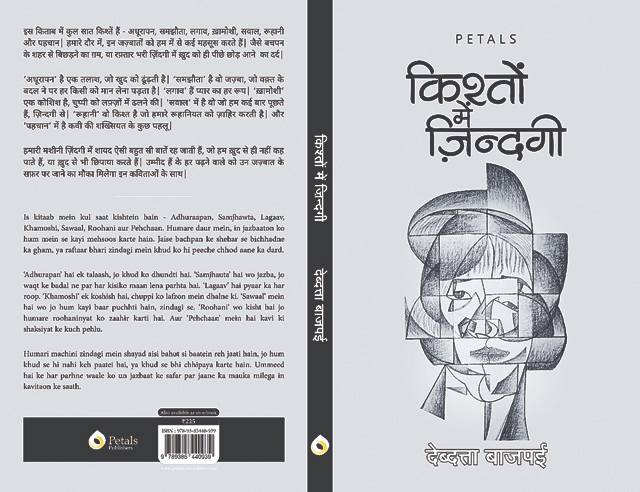
“You live life in instalments. It is not the ebb and flow but in packets. You receive life in packets. Today you might get an instalment of happiness, tomorrow you might get an instalment of sadness, the day after that of anger, and so on, it will always be like that. You will not have everything all the time. Calling it the moments of life is I feel a super simplification of the thought because a moment can be anything and can have anything. But if you put the sum of emotions together then it tells a story and that becomes one instalment,” said Debdatta.
The book is available on Amazon and will soon be available as an audiobook on Audible as well. What’s next for the author? “I’m already composing some of the poems into songs so that’s the next plan. And of course, I will keep writing, I am already writing. So maybe there will be a Kishton Mein Zindagi part two or a Naye Kishtein. In fact, I have already started writing Naye Kishtein. So songs and poems are the next big step,” said Debdatta.

